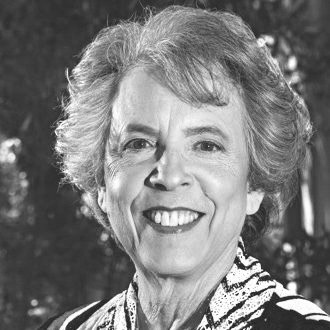Purim is every child’s dream holiday; the story is like a fairy tale. Little girls dress up like Esther; little boys like Mordechai. In synagogues around the world we chant the story from the Scroll of Esther and boo every time the evil Haman’s name appears. It is a wonderful children’s holiday.
But it is so much more.
As adults, we appreciate the delicious ironies of the story. First, that a king who has to issue an edict that all husbands must be obeyed ends up taking orders from his wife. Second, that the plans of Haman have the opposite effect: He is destroyed and the Jews are saved. It is the story of reversals — the vulnerable becoming the strong.
As adults, we recognize that this is a story about power, and about how people without direct power learn to make the system work for them. We read between the lines and discover a story about living in the Diaspora and how we sometimes have to dance around those who might hurt us. We notice how much we long for a story where the powerless become powerful.
As adults, we cringe at the image of a young girl in the king’s harem. It reminds us that sexual slavery continues into this day, in all the countries where we live.
And as adults, we notice how bloody the story is. The Jews defend themselves against the people who tried to slaughter them, and they end up slaughtering their enemies. In the end, the Jews are saved. Purim has a happy ending, but as adults, we remember all the other times when there was a different ending.
The Sabbath before Purim is called Shabbat Zachor, the Shabbat of Remembering. We read: “Remember what Amalek did to you on the road as you came out of Egypt—how he attacked all the stragglers in the rear, those who were famished and weary. … Therefore when the Lord gives you security from your enemies in the land that God is giving you as an inheritance, you shall blot out the memory of Amalek from under heaven. Do not forget.”
We read about Amalek on the Shabbat before Purim because Haman is a descendant of the tribe of Amalek. Jewish tradition suggests that Amalek will always have spiritual descendants:
“Remember … and blot out the memory. … Do not forget.”
Remember and blot out—this is a strategy for healing from abuse. We learn from psychologists that victims of abuse need to first recover their memories of victimization, but at some point in the healing process, they need to blot out the power those memories have to control their lives.
The command was never to blot out Amalek — just his memory. The command is to take rage and turn it to healing. The command is to blot out the memory of Amalek and, therefore, to blot out of ourselves the tendency to do to others what others have done to us.
Purim isn’t a children’s holiday. No, quite the contrary; it is the most grown-up of all of our holidays because it forces us to look at our dark side — the side that has been hurt, the side that is afraid, the side that wants to take revenge against those who have hurt us. Purim tells us that it is OK to have those feelings, to tell the story, even to celebrate the fantasy. But it reminds us not to act on the feelings of revenge.
Remember, and remember as well that the commandment is to blot out the memory of Amalek, not to blot out Amalek. There really are people in the world who will hurt other people. The mitzvah is to blot out the power they have to threaten the world. The mitzvah is not to take revenge, not to kill innocent people. The mitzvah is to do what we can to blot out the power of those who can do evil without letting the memory of our hurt lead us into easy answers.
At the end of the public reading of the story of Esther, we say a blessing: “Blessed are you, God, who takes up our grievance, judges our claim and avenges the wrongs against us. You bring retribution on our enemies and vengeance on our foes.”
This blessing reminds us, in very clear and direct terms, that vengeance should never be in our hands, but only in the hands of God.
Yes, we need to remember, but we also need to blot out the memory. We need to free ourselves from despair and darkness, and we need to find a way to bring light and joy and gladness and honor to everyone in the world.
Laura Geller is senior rabbi of Temple Emanuel of Beverly Hills (tebh.org).























 More news and opinions than at a Shabbat dinner, right in your inbox.
More news and opinions than at a Shabbat dinner, right in your inbox.